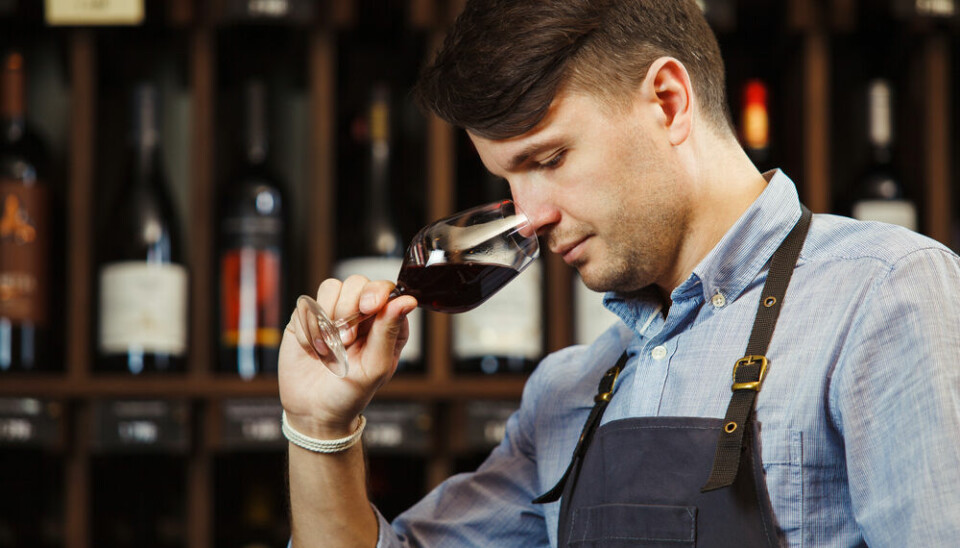It is hard enough trying to describe wine in your own language, whether you are asking a sommelier or merchant about what to choose or simply saying what you like (or dislike) about a wine that you are tasting.
Doing that in French is twice as hard.
I have put together this little guide to help English–speakers with helpful words and phrases used (and some things not to say) when discussing wine.
Sweet wines
Starting with the basics, when we talk about the sweetness of wine, we use a range from sec, demi–sec, moelleux to doux, sucré and liquoreux.
The words for sweet wine are fairly interchangeable but a ‘Vin Doux Naturel’ is a sweet, fortified wine such as Muscat de Frontignan whereas liquoreux would cover very sweet wines like Sauternes and Coteaux de Layon.
The term ‘sec’ is almost as confusing as ‘dry’ in English.
Theoretically it means a wine with no sugar in it. But it can also be used, negatively, to mean that the wine dries your mouth, because it is too acidic or tannic.
One should probably say séchant, but that is quite negative.
Doux can also mean that the wine is nice and smooth, usually used for red wines.
Read more: Eating faux-pas: habits to avoid when dining in France
Describing the appearance of a wine
In English, wine writers often describe the colour of wine using terms like pale straw, golden, garnet and ruby.
I’m not sure why because even complete novices can tell you what colour a wine is.
I can’t say that I have heard French people talk in much detail about the appearance of a wine.
However, terms to know include la robe (the overall appearance), la nuance (the tone) et l’intensité – légère (light) or foncée (intense).
How a wine smells
The aroma translates to le nez or le parfum.
I think people generally find it easier to describe the aromas of wine than the flavour.
Our sense of smell is very closely related to our memory so people instantly remember things that they may smell in a wine.
Therefore it is worth learning the French names of the things that we commonly associate with wine aromas.
The more general terms are fruité, florale, végétal, épicée, animale, minéral and lactée (dairy).
Read more: Lidl’s €1.89 bottles of Bordeaux spark protests in south-west France
French words to describe the aroma
Here is a short lexicon of the less obvious words you might find useful:
• Citrus fruits – agrumes
• Raspberry – framboise
• Blackcurrant – cassis
• Pineapple – ananas
• Gooseberry – groseille
• Liquorice – réglisse
• Fennel – fenouil
• Preserved or cooked fruit – fruit confit
• Undergrowth – sous bois
• Toasty – toasté, grillé, brûlé or torréfié
How a wine tastes
When it comes to the taste, we generally mix up flavours and textures, which makes it more difficult to describe. All of this is la bouche (literally ‘the mouth’).
Our taste buds only detect four things: l’amertume (bitterness), l’acidité (acidity), le sucré (sweetness) and le salé (salt).
Describing the taste is where we can easily offend the server as almost all the terms are personal opinions on whether the factors are missing, just right or excessive.
French words to describe overall taste
Here are some positive words to use for each aspect:
• Easy drinking – gourmand
• Nice acidity – tendre, frais, vif, nerveux
• Good body – généreux, vineux, chaleureux or capitaux
• Smooth tannins – soyeux, velouté, fondu
• Structured tannins – construit, structuré, charpenté or corsé
• Elegant – équilibré, harmonieux, élégant
Long – persistant, long en bouche
Explaining why you do not like a wine
If you want to use words to show your dislike of a wine, here they are (use wisely).
• Too acidic – vert or agressif
• Too sweet – sirupeux or lourd
• Too alcoholic – brûlant
• Too oaky – trop boisé
• Too tannic – astringent, âpre, séchant or dûr
If you believe a wine is corked, say it has le goût de bouchon (the taste of the cork).
If you really want to insult a wine go for pinard (plonk), dégueulasse (disgusting) or imbuvable (undrinkable).
I hope this short guide will give you a bit more confidence discussing wine with your French friends as well as with cavistes and sommeliers (who can be quite intimidating) as well as understanding the way wines are described on restaurant wine lists and the back label.





























